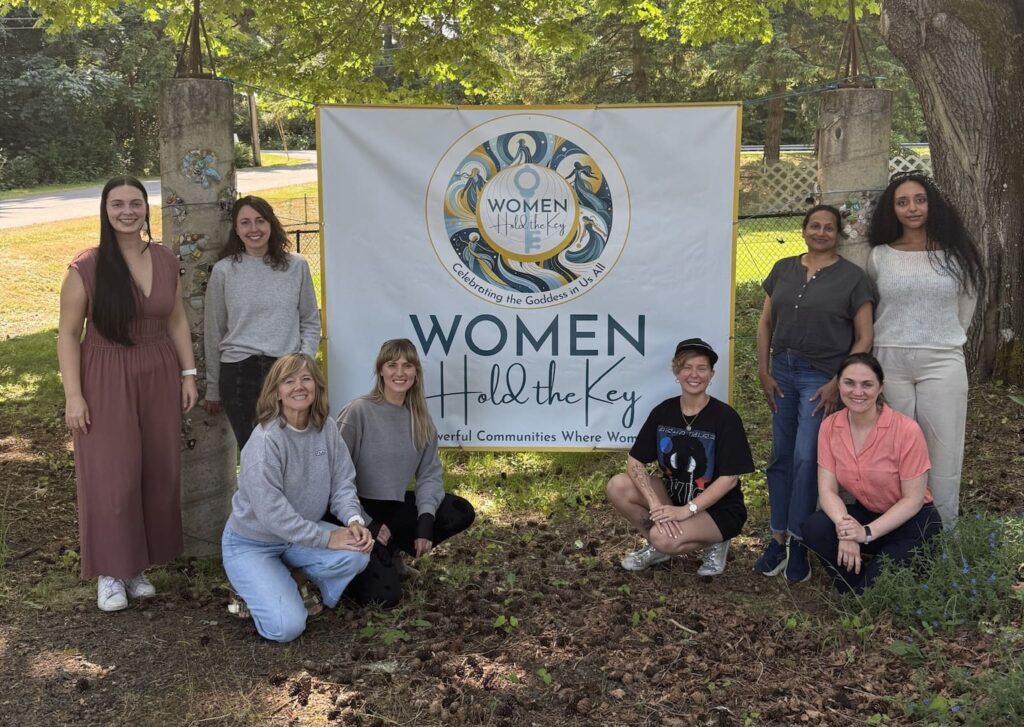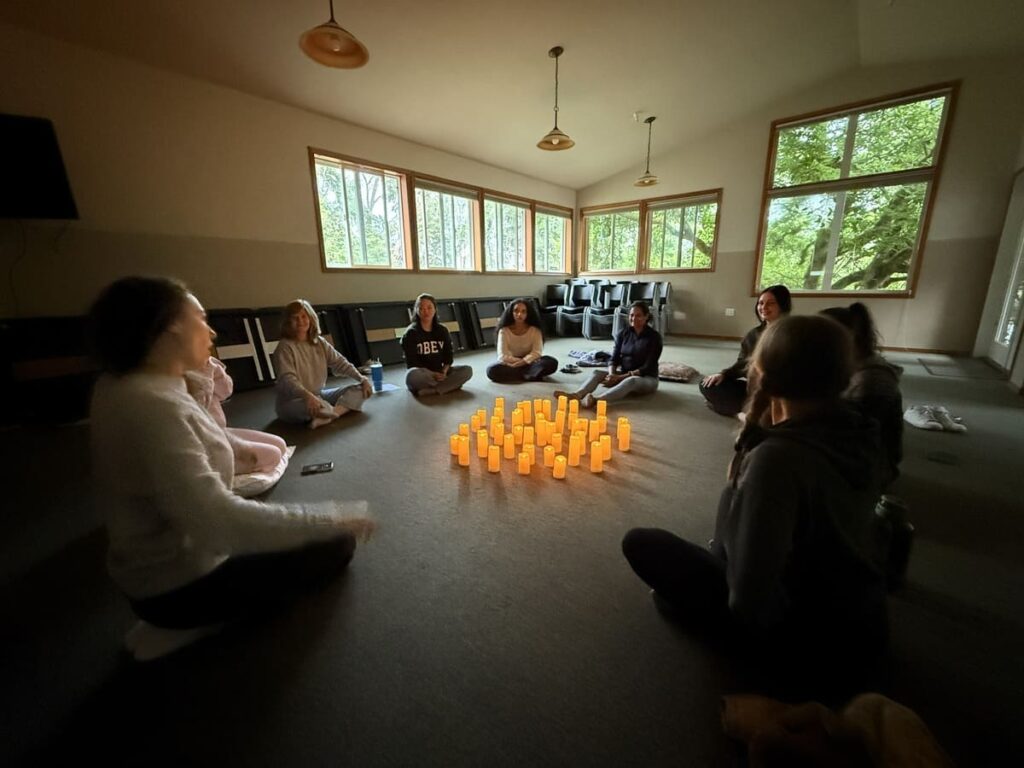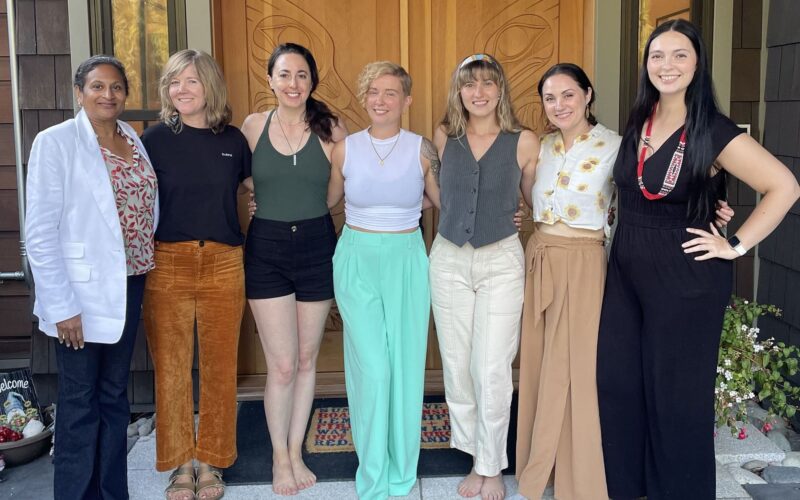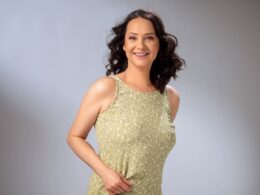Now in its first year, the program offers a rare combination of creative freedom and economic security, with living wages, non-recoupable grants, and a holistic 18-month curriculum.
We sat down with Rachel and Sienna to talk about their vision for reshaping the independent film landscape, their personal journeys, and how they’re building a future where women’s stories aren’t just heard — they’re championed.
What was the spark that led you both to create the Emerging Filmmakers Program, and how did it evolve into the model you’re launching now?
We both started our careers in LA and were overwhelmed by how male-dominated the industry was, on both the creative side and in production/technical roles. We connected over our shared passion for getting more women in front of and behind the camera, and thus Emergence Films was born. Our company now has two main branches: the first one being the development and production arm, which supports our creative projects, such as feature films, documentaries, tv series, immersive theater, and more. The second is our philanthropic arm, which is the Emerging Filmmakers Program, that provides a comprehensive incubator for early-career, female-identifying filmmakers. It is a foundational program that provides education, skills training, industry mentorship, a paid apprenticeship, as well as a $10,000 cash grant for a short film project. We are currently in our first cycle of the program, with two teams of filmmakers based in Washington state. Our goals for the future is to expand to additional cities and countries around the world, utilizing the structural and financial model we have developed.
Many initiatives exist for independent filmmakers, but your program stands out for offering a living wage. Why was this aspect so important to you?
We offer each participant an “earn while you learn” living wage for all of the hours they spend learning with us on the program. Newcomers are so often expected to “pay their dues” by working for free. This creates a huge barrier to entry, because that means that only the people who have the privilege or resources to work for free are allowed in. We want to lower this barrier and send the message that everyone is welcome in the entertainment industry. We need as much diversity as we can to make sure that screen media reflects the world around us.
The program emphasizes collaboration between a writer, director, and producer. Why was this structure chosen, and how do you see it shaping the participants’ future careers?
We wanted to emphasize the importance of creative working relationships in filmmaking. We decided to set up the application process so that people applied in teams of either two or three people, covering the roles of writer, director and producer, or a combination therein (e.g. a team of two could be one writer/director and one producer). It takes a village to make a film, and the core creative team is the driving force behind each project. It takes a lot of trust and collaboration, and we wanted to give creative teams the opportunity to learn and grow their career together.
Unlike traditional funding models tied to recoupment, your approach allows for more creative freedom. What kinds of risks do you hope your filmmakers will feel empowered to take?
Hopefully risks that we can’t even think up! Having the short film budget be supported by a non-recoupable grant means that the filmmakers don’t need to be focusing on telling “commercial” stories, and can find unique and effective ways to connect with their audiences, no matter how “niche” they might seem. We want them to think outside the box in terms of story structure, filming style, protagonist perspective, music choices, and more!

You’ve both spoken about the systemic barriers female-identifying filmmakers face. From your own experiences, what are the most pressing barriers that need dismantling?
Though this is changing slowly, unfortunately a lot of the decision-makers and holders of the purse strings when it comes to financial resources are still mostly (cis het) men. While it is absolutely possible to make films on no or low budgets, a filmmaker cannot make a sustainable creative career without funding. So the sooner we can have more women in positions of power and influence, the better.
Beyond gender, how do you envision the program uplifting other underrepresented voices in independent cinema?
We champion women of all walks of life – all ages, ethnicities, gender identities, socio-economic backgrounds, abilities, etc. We truly believe in Geena Davis’s key phrase “If she can see it, she can be it.” When women of all kinds see themselves supported and represented in media, it means they have someone to look up to and admire, and they can feel empowered to take action and make their own voices heard.
Hollywood has often been slow to embrace female-driven content, despite its proven success. Do you feel the independent space is better positioned to lead that change?
Films in the independent space have more creative freedom, because they don’t have dozens of executives breathing down their necks, asking when their investment is going to be repaid. If a film is solely focused on returning its investment, that means it’s trying to cater to the masses, instead of telling unique, specific and authentic stories for unique, specific and authentic audiences. Filmmakers need freedom to be who they are and tell their stories how they want to, and this is what the indie space provides.

You’ve each had rich careers before founding Emergence Films. How did your previous experiences in Hollywood and independent filmmaking shape the values behind this program?
Honestly, our lives in LA really shaped what we didn’t want to do with the program. There was so much gatekeeping and misogyny, we knew we had to do something different. Something radically inclusive and supportive. As women, we have stereotypically been pitted against each other, and been made to feel like there is only room for one woman in the room. This couldn’t be farther from the truth. We want to create a community that focuses on empowerment and uplifting each other, because when one woman wins, we all win. A rising tide lifts all boats.
Looking back on your own early careers, what kind of program or support do you wish had been available to you?
There still isn’t really a roadmap into the film industry, because every person’s creative journey is different, but we wish there had been more transparency about how to get entry level jobs in the industry. There is so much pressure to work for free and to accept any type of work offered to you for “credit, copy, meal”, because the industry made it feel like you didn’t have a choice. We want to emphasize to women that they do have a choice and that their time is valuable.
Your most recent feature, Inheritance, premiered at Dances With Films this summer. How did your experiences producing that film inform the structure of the Emerging Filmmakers Program?
INHERITANCE was our second feature as a company, and we were able to see amazing career progression with the crew we had worked on for our first feature, INGRESS. We were inspired to see how some crew and cast members who had never been on a film set before had continued to pursue filmmaking jobs, and came back to our set with more confidence and experience. It’s so difficult to see career progression when you’re early in your career, so we wanted the Emerging Filmmakers Program to support filmmakers with both a short film and a microbudget feature film, so they could have two really strong projects under their belts as they started their careers. We are still very much aiming toward that goal for future cycles.
Right now the program is focused on Washington-based filmmakers. What’s your vision for scaling it nationally—or even globally—in the coming years?
We can’t wait to expand! Now that we have the curriculum and budget template in place for this first year of the program in Washington, it is a matter of partnering with other companies in different cities around the world. Since both of us are currently based in Washington, we are connected to the local resources, and this is crucial for filmmakers just starting out in their careers. So we think the best way to expand the program is to essentially franchise the format to other companies that are local in different cities, and have the program be run in those cities by local filmmakers, while being overseen by Emergence. Since we also have a presence in London, we’re hoping that will be our next stop.
If you imagine the long-term impact of the Emerging Filmmakers Program, what does success look like to you?
In the long run, we hope to seed careers that continue for many years and grow into a strong community of women who support each other’s projects and strive for creating a more equitable and holistic industry. It’s a trickier metric to measure, because we have to be patient to see those results, but we feel very confident that the more resources are spread around, the more we will see women from all walks of life lifting their voices and sharing their stories.









